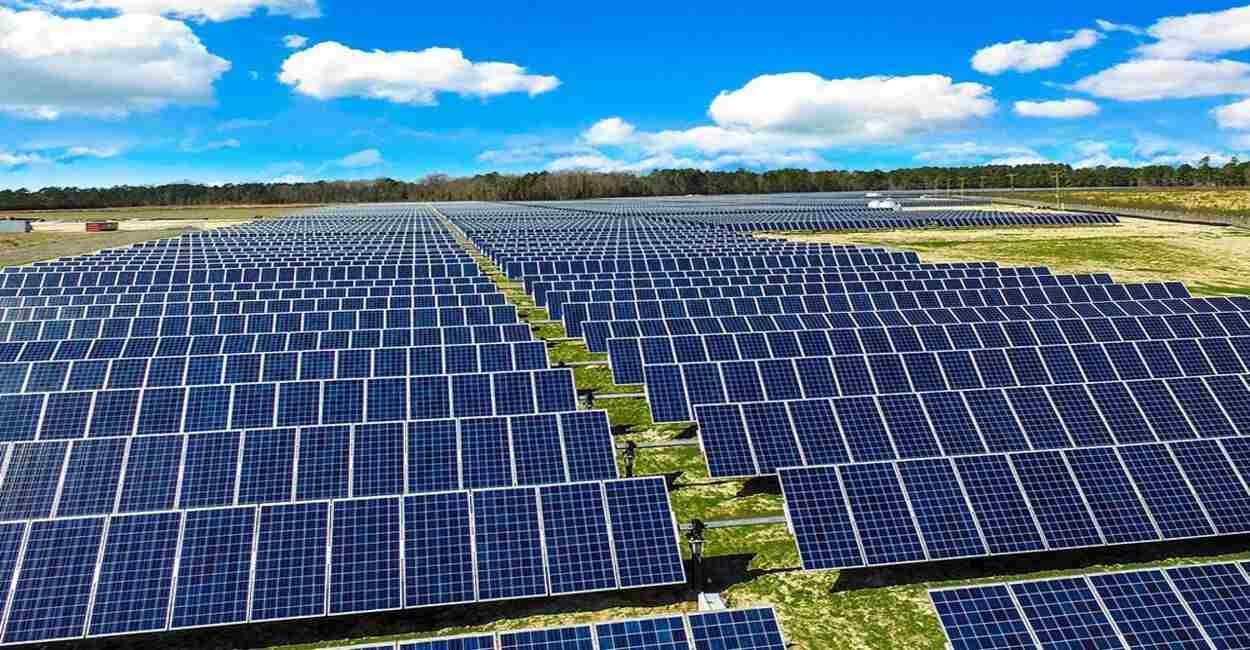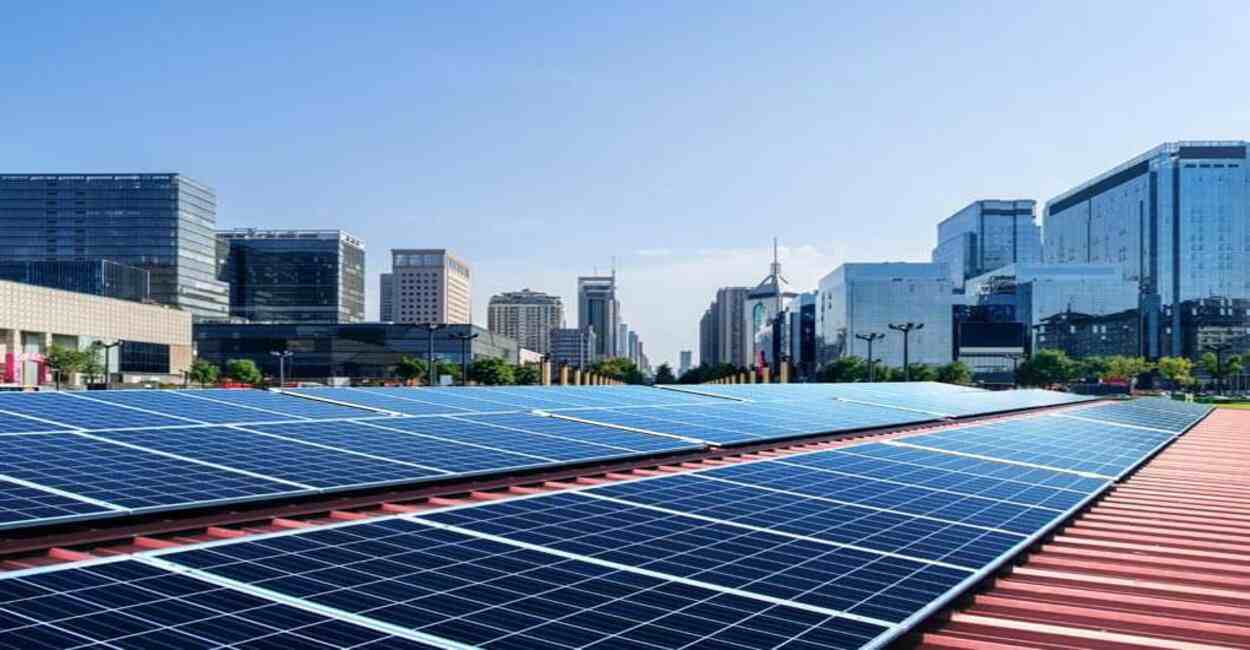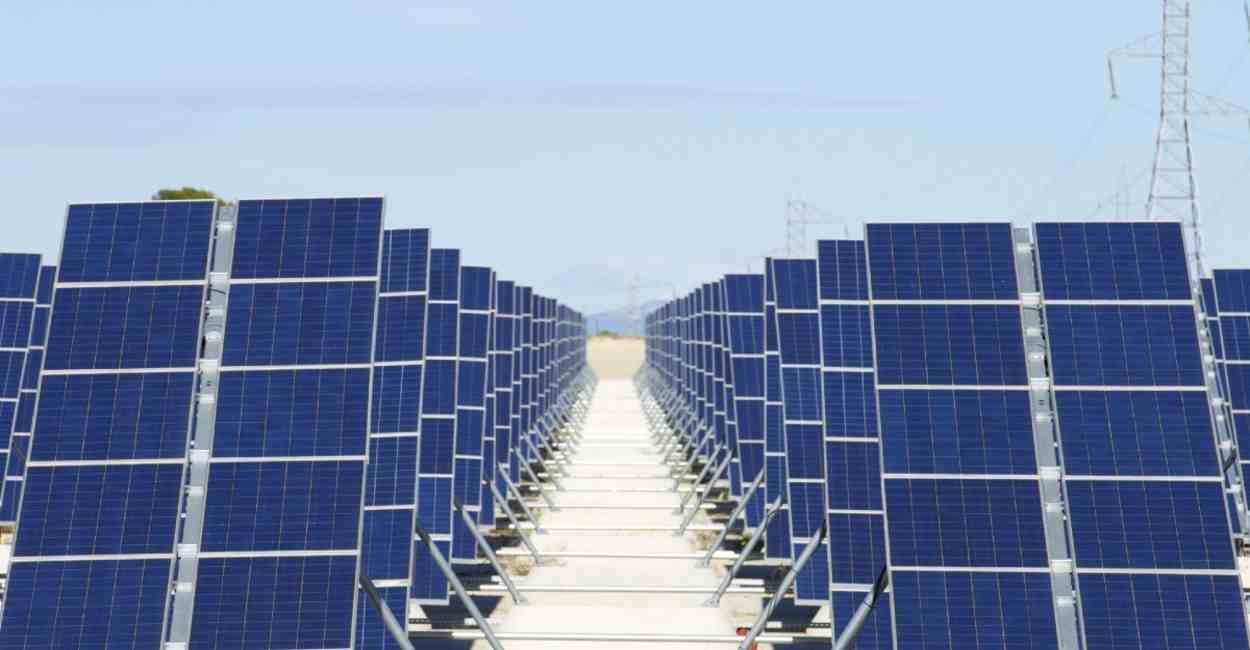Benefits Of Solar Energy In Industries

If we talk about the popularity of the solar system, then industrial solar power systems are rapidly gaining popularity. Solar energy is promptly becoming the mainstream alternative energy source worldwide. This is all because solar energy is one of the most sustainable energies.
In the past years, there has been an increase in solar system providers helping businesses and industries access solar energy. The installation of the industrial solar power system is a great energy source for the planet and an excellent alternative to energy sources.
Industries That Are Utilizing Solar Power Systems
These days, solar power systems are being used by some of the major industries. Resources and solar power providers are available in the market for bringing sustainable energy to your business.
Here we mentioned some of the major industries that have initiated advancing towards solar energy are:
- Agriculture
- Textile
- Cement
- Paper
- Steel
- Chemical
- Dairy
- Ceramic
Let's Check Out Some Of The Benefits Of Solar Energy In Industrial Applications:
Economical and Cost-effective
If we talk about the cost of the industrial solar power system, we have concluded that the average tariff rates of solar electricity are cheaper. Therefore, an alternative energy source for electricity is beneficial in reducing costs and helps you gain tax relief.
As per section 32 of Income Tax in India, businesses are allowed to access accelerated depreciation benefits. This will help depreciate their investments in solar power at a higher rate than their fixed assets.
Over a business, significant investments, expenses, and many more factors exist.
A business organization not only pays for the electricity but also produces extra energy for utility in the long term.
Free Power Consumption
When using the solar power system, the business can produce unlimited energy as the solar panels have more energy than is required. The solar systems help facilitate the deductions on their bills and sell the excess power to the local government.
There is unlimited availability of energy that is being produced every day. A business organization focuses on other core areas without worrying about electricity costs.
Property Value Appreciation
After installing the solar power system, it helps increase the total valuation of the property.
People prefer to go into real-estate investments which are highly environment-friendly and have sustainable energy sources. Therefore, a building with solar power systems will be much more sought after for commercial or industrial utilities.
Environmental-friendly
To save the planet, business organizations are taking positive initiatives. With the involvement of solar power systems, the world's pollution is decreasing.
There is no harm to the environment, and it is a highly sustainable choice that will help create a greener energy source. Carbon dioxide emissions are heavily reduced using solar power systems rather than conventional electricity.
Why Is Solar Energy Important For Industry?
Each day we are going through the facts related to rising pollution, the hiking of fuel prices, and the depletion of fossil fuels. These issues are constantly highlighted to make people aware of and responsible for these global issues.
These issues are interrelated to each other.
Here are some prime reasons for not using renewable green energy sources.
Environmental Impact of Solar Energy.
The solar power system helps in the reduction of pollution and has to be the most important.
Less Pollutant: Cleaner & Greener Environment
Have you ever wondered how much fossil fuel you use in your daily activities? The amount keeps getting bigger day by day. We all prefer to live in a clean-fresh environment, and still, knowingly or unknowingly, we are harming the environment. Burning fossil fuels for our daily energy needs produces toxic emissions like nitrogen oxide, carbon monoxide, sulfur dioxide, and many more gasses.
The only solution to this problem is shifting towards green energy consumption, including solar energy. Solar energy doesn't contribute to harmful emissions.

More Jobs
Solar energy is essential for the future as it will bring many job opportunities supporting securing the future. There is a boom in the solar sector, which helps create awareness among people, and commercial sectors have started installing solar panels. As with the industry's growth, there would be a massive demand for the solar system in skilled laborers, employees, service engineers and marketing professionals who will keep this sector working smoothly.
No More Power Outrage
Electricity has created too much dependency on lives. Even if you wish to stay in places far away from cities/ towns, away from residential setups, you can't because there's no availability of electricity in such remote areas.
With this, we can boast that the shortage of fossil fuels will never bother us again. With the increasing demand for solar power, there shall be a considerable decrease in power outages.
Solar Saves Money
Solar is green for both the environment and the pocket of an individual.
Investing in the solar sector can be a boon for investors, as solar is booming. Many companies, such as UTL Solar, are leading the solar industry.
Installation of solar panels is considered a one-time investment; once you've paid your initial investment cost you can enjoy the facility of free electricity for the rest of your life. A solar panel has a long-term guarantee period of 25 years.
Suitable for Indian Climate
Another strong reason solar energy is essential for the future is the availability of ample sunlight. A country like India has a suitable climate for harvesting solar energy.
Benefits Of Solar Panels For Industrial Use In India
With time, solar power panels rapidly become mainstream alternative energy sources worldwide. Many business owners have a false mentality regarding solar systems that the panel is not affordable for small or medium-sized businesses, but that is not true. In recent years, solar panels have dropped price and facilitated several benefits to organizations. The system can be accessible to most homeowners. The cost of purchase and installation continues to fall, and there are new contracts in the marketplace, as providers offer lease-to-buy options while still offering energy below the prices of conventional utilities.
Here, we have listed some advantages that industrial companies can get by going for a solar PV installation.
Reduced electricity bills
Electricity expenses are constantly increasing. Usually, it has been seen that there is around 15% of the total cost reduction. Solar power has become a sustainable and cost-effective energy alternative for business owners with a fixed-cost solution. The tariff rates for solar power are cheaper by about 20% than conventional electricity. The total lifespan of a solar system is 25-30 years. This makes your energy bills more predictable at lower costs.
Renewable energy
Solar power is a 100% clean, renewable energy source that helps reduce the dependence on oil, coal, and natural gas for electricity production. These fossil fuels produce damaging emissions that affect the quality of air, water, and soil and are responsible for global warming. According to experts, by the end of 2065, our planet will lose more species of plants and animals to extinction than in the previous 65 million years combined.

Increase the value of energy-efficiency
Installing solar panels on your company's roofs can increase the property's value and help you sell faster if you intend to do that in the future.
Reduced carbon emission
Saving the planet helps in reducing carbon footprints and fossil fuel consumption. Unlike fossil fuels, solar panels generate electricity without air or carbon pollution and ash or other waste products.
Solar Energy For Manufacturing
The technology of generating power from the sun has been around for decades, but in the 20th century, it needed to be more genuinely viable.
With modern photovoltaic cells and the innovations introduced by entrepreneurs like Elon Musk and SolarCity, homes all over the country are "going solar." People are looking for ways to become more eco-friendlier.
There are three ways in which solar energy can be great for manufacturing companies.
Branding
The companies are branding themselves as environmentally friendly. Construction companies boast of "green" building practices while food services promise to make use of the sustainable inventory.
Companies are being able to brand themselves as environmentally-conscious company that make the efficient usage of solar energy can be great for public relations.
Efficiency
You may not be concerned with your roof's appearance. However, over the market, there is a massive availability of stylish solars, and you can use a part of your facility that you have primarily ignored up until now.
Cost-Cutting
The essential way that a manufacturing company can benefit from solar energy is that it will save money. There are manufacturing plants that consume a lot of power. You may need help getting all the power you need from solar panels. A photovoltaic array allows you to control how much energy you get from the power grid. The more solar energy you draw, the less you need to rely on the power grid, and this initiative can save more and more money.
A switch to solar energy can significantly benefit your manufacturing business to jump in with both feet right away.
Conclusion
Any business, whether in the industrial sector or in the service sector, needs an electricity supply to be able to carry out basic functions in its facilities. Therefore, having the best energy solution is a key point when it comes to reducing the fixed costs of economic activity.

